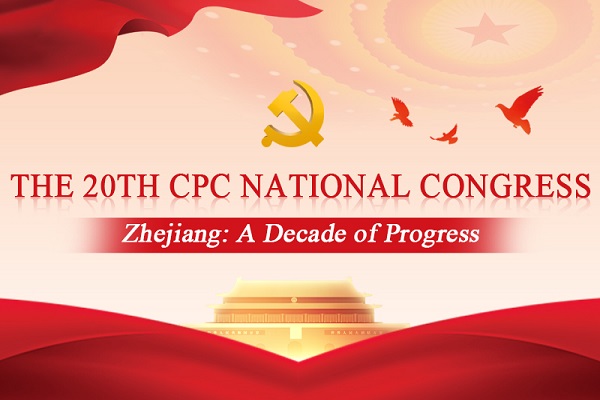Vice-premier vows greater support for private sector

Bank employees inspect a small firm that received a loan in Hai'an, Jiangsu province. [Photo by XU JINBAI/FOR CHINA DAILY]
Intensified support must be given to support the growth of the private sector and encourage it to play a greater role in boosting innovation and stabilizing growth and employment, Vice-Premier Liu He said on Monday.
Liu's remarks, made in a video speech at the China International Digital Economy Expo 2021, challenged claims that there had been a "crackdown on a wide range of industries", especially in the private sector.
Analysts said that as one of the cornerstones of the Chinese economy, the private sector will continue to support China's high-quality development in a more open and inclusive market.
In his speech, Liu confirmed that the private sector is of critical importance to the country's overall economy, and supportive policies toward private businesses "have not changed, are not changing, and will not change in the future".
Liu said intensified support must be put in place to shore up the development of the private sector and help it play a greater role in boosting growth, stabilizing employment and advancing innovation and economic structural adjustment.
The private sector accounts for more than 50 percent of the country's tax revenue, more than 60 percent of GDP, and over 70 percent of its technological innovations. It also provides more than 80 percent of urban employment and accounts for more than 90 percent of market entities in China, the vice-premier said.
" (We) must continue reforms to develop a socialist market economy, firmly advance high-level opening-up, adhere to the basic economic system of the primary stage of socialism and … resolutely protect property rights and intellectual property rights," he said.
Liu affirmed that China will remain committed to unswervingly consolidating and developing the public sector and unswervingly supporting and developing the nonpublic sector.
Analysts and industry insiders hailed the remarks as clear signals that will help shore up market confidence and give the private sector "peace of mind".
"The remarks from Vice-Premier Liu, coupled with recently issued policies supporting private businesses, will surely boost the confidence of private businesses and the country's small-business community," said Wang Zhe, a senior economist at Caixin Insight Group.
The latest executive meeting of the State Council unveiled a raft of incentives, in fields such as financing and loans, to help smaller businesses and self-employed individuals.
Private enterprises have displayed great resilience in dealing with the impact of the pandemic, because they grow and survive through fierce competition, said Zhang Yansheng, chief researcher at the China Center for International Economic Exchanges.
Zhou Guoxiang, vice-president of Amico Group, a private valve and faucet manufacturer based in Ningbo, Zhejiang province, said that as China recovers from the pandemic at an amazingly rapid speed, more government support has been provided, such as cutting the review time for financing and boosting market access.
Rule of law emphasized
In his remarks, Liu also underlined the importance of continuously improving the rule of law, protecting fair competition and curbing monopolies in developing the digital economy.
Experts said that the recent moves to tighten regulation on certain private companies should not be interpreted as a signal that the government will categorize businesses by ownership and treat them differently.
Zhou Mi, a senior researcher at the Chinese Academy of International Trade and Economic Cooperation in Beijing, said for companies with monopolistic behavior, it is vital and legitimate for the government of any country, including China, to take firm antitrust actions to protect the interests of both industry players and customers, improve market efficiency and sustain market vitality.
"China's antitrust efforts are aimed at preventing major risks and creating a fair market to drive the growth of all enterprises, regardless of whether they are private, State-owned or foreign ones," Zhou said.
He noted that the digital economy is "an emerging sector with rapidly evolving innovations, and therefore it is sometimes hard for regulations and industry standards to keep up with the pace of development and innovation".
"That means the government needs to step up regulation when the behavior of some leading industry players has harmed the interests of other market entities and customers."
Zhou said that through these antitrust efforts, the Chinese government is determined to deepen reforms and enhance opening-up, in order to let the market play a more effective role in resource allocation.
Zhong Nan contributed to this story.


 Red boat spirit inspires new developments
Red boat spirit inspires new developments Zhejiang: A Decade of Progress
Zhejiang: A Decade of Progress A look at Jiaxing's H1 economic data
A look at Jiaxing's H1 economic data